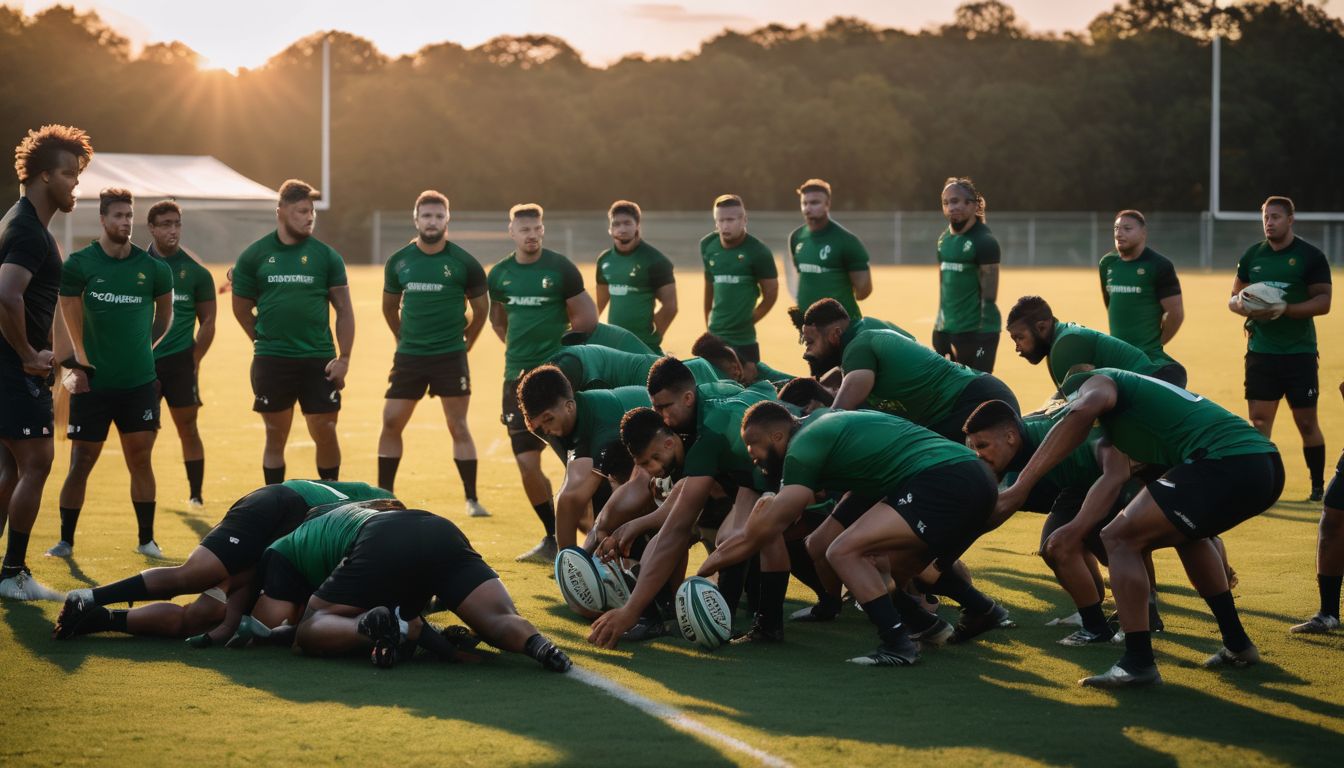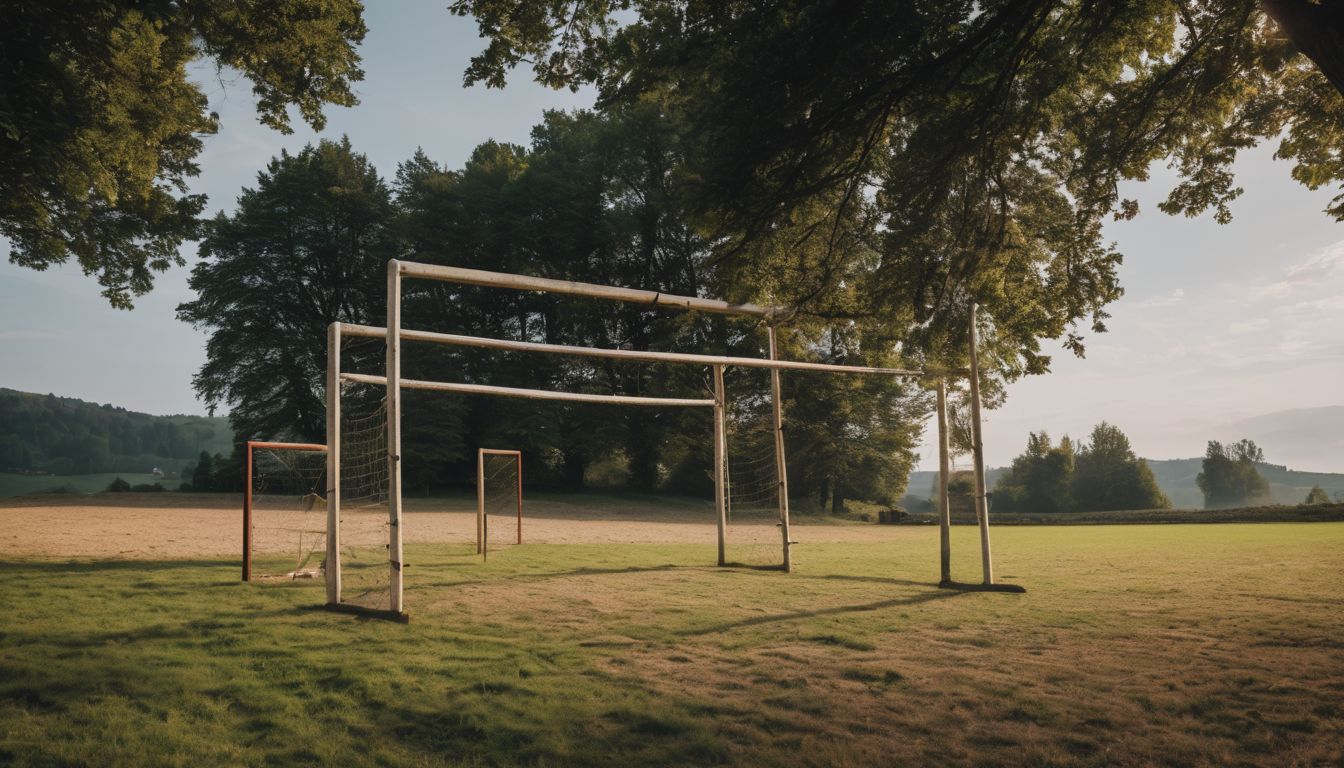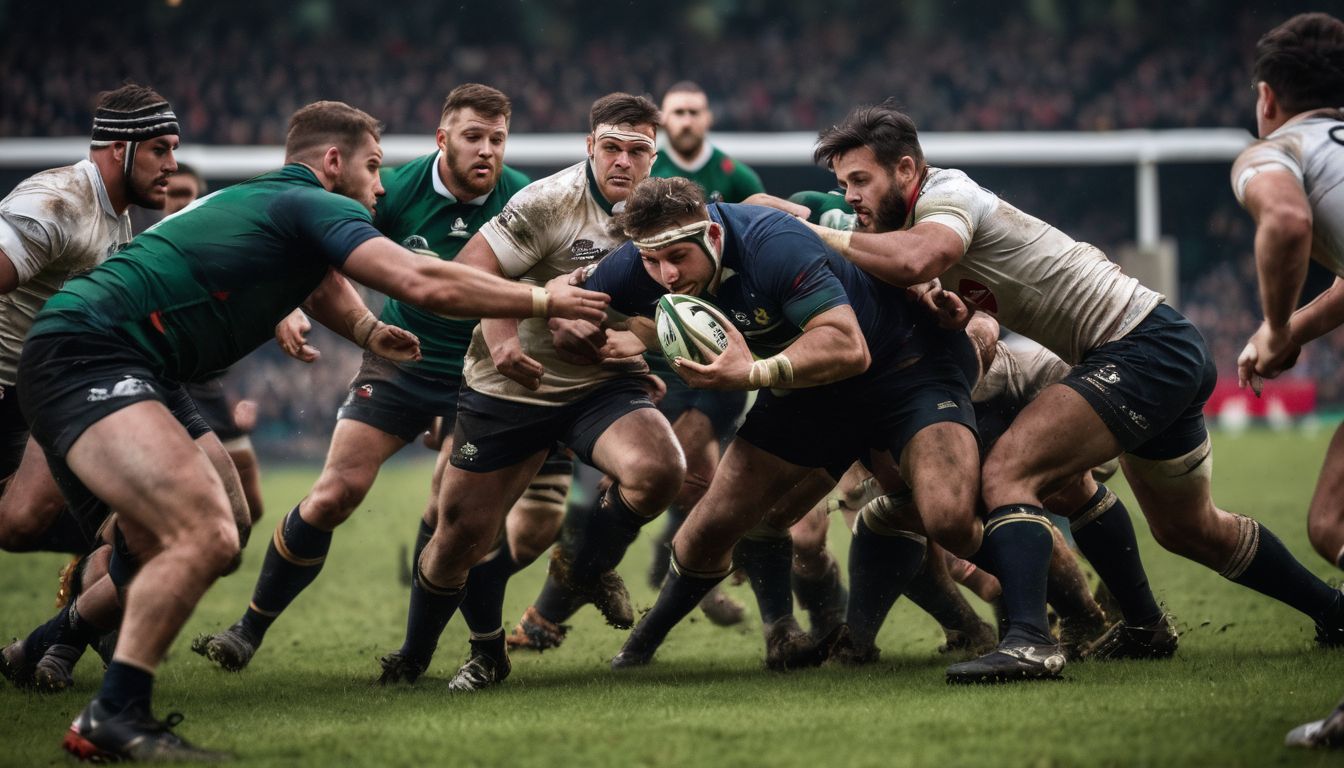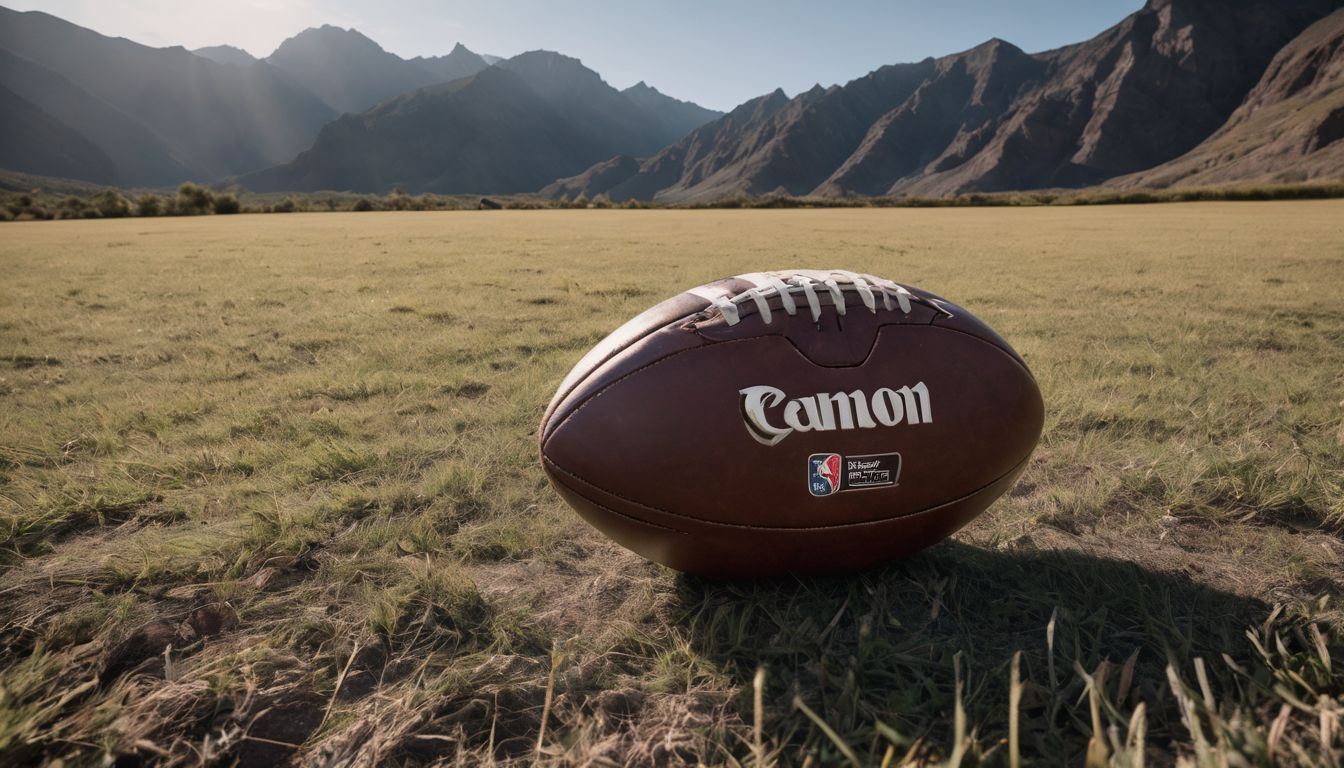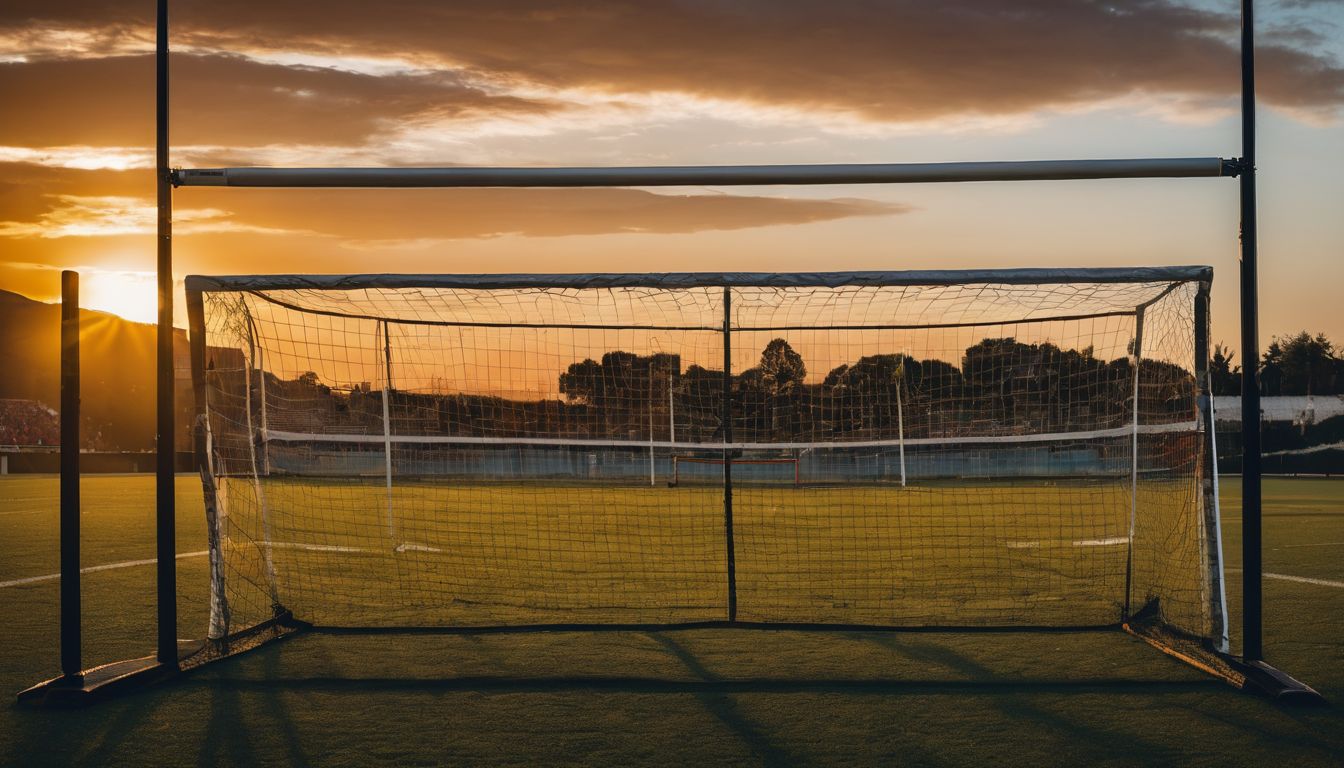For rugby fans, there’s nothing like the thrill of a classic match being played out on the field. We’ve seen some true giants clash over the years, painting an epic canvas of blood, sweat, and cheers.
This article will take you through a journey reliving those legendary games that have shaped rugby history and left an indelible mark on our hearts. Ready for nostalgia? Let’s dive into these unforgettable encounters!
Key Takeaways
- France’s surprise wins against the All Blacks in both the 1987 Semi-Final and the 2007 Quarter-Final disrupted New Zealand’s reputation as rugby giants, with Serge Blanco’s dramatic try in ’87 and their determined performance in ’07.
- Jonah Lomu dominated the field during the 1999 Semi-Final, changing how wingers played rugby with his physical prowess and leading to a lasting legacy that influences today’s players.
- The intense rivalry between France and New Zealand has provided some of rugby history’s most thrilling matches, including their hard-fought battles in key World Cup games like the 1991 Semi-Final.
- Despite France’s valiant efforts in a tense game, New Zealand secured victory in the 2011 Final, marking redemption after past disappointments and cementing their status as one of rugby’s top teams.
The 1987 Semi-Final: France Shocks the All Blacks
In the 1987 Semi-Final, France shocked the world by defeating the All Blacks in a thrilling showdown. The match was filled with intense moments and unexpected turns that left a lasting impact on the tournament.
Key moments in the match
The 1987 Semi-Final between France and the All Blacks is etched in rugby history. This iconic clash had several key moments that defined its outcome.
- Serge Blanco’s stunning try in the final minutes sealed a French victory, marking it as one of the most dramatic endings in World Cup history.
- A pivotal scrum near New Zealand’s line set up the play which led to Blanco’s momentous score, showcasing France’s forward dominance.
- Michael Jones, playing for New Zealand, was a constant threat with powerful runs that tested the French defence throughout the match.
- The All Blacks’ John Kirwan showcased his agility with an early sprint down the field, but France’s robust defence held him back from scoring.
- French fly – half Didier Camberabero kicked crucial goals, keeping the team within striking distance of a win.
- A controversial decision by referee Kerry Fitzgerald penalised New Zealand and shifted momentum towards France during a critical phase of play.
- Thierry Lacroix made significant contributions for France with his pinpoint kicking game and tactical astuteness.
- The All Blacks’ Gary Whetton displayed sheer strength in lineouts but couldn’t steer his team to triumph against a resilient French side.
Impact on the tournament
France’s stunning victory over the All Blacks in the 1987 Semi-Final had a profound impact on the tournament, shaking up expectations and leaving a lasting legacy in rugby history.
The unexpected defeat of New Zealand by France reshaped the dynamics of the World Cup, challenging perceptions of invincibility and setting the stage for future underdog triumphs in rugby.
This historic match marked a turning point that continued to resonate throughout subsequent tournaments, influencing teams’ strategies and inspiring belief in achieving remarkable upsets.
The compelling narrative of France’s triumph against formidable opponents sparked renewed passion and fervour among fans, igniting an enduring legacy that transcended beyond this singular event.
The 1991 Semi-Final: A Hard-Fought Battle
The intense rivalry between France and New Zealand led to an epic gameplay in the 1991 semi-final match, with both teams fighting hard for victory. Unforgettable moments and a nail-biting finish made this clash one for the history books.
Intense rivalry between France and New Zealand
The intense rivalry between France and New Zealand has produced some of the most thrilling matches in rugby history. The competitive spirit between the two teams has resulted in unforgettable moments that have captivated fans around the world.
From stunning upsets to epic comebacks, each encounter between these legendary rugby nations has added a new chapter to their storied rivalry, making their clashes a must-watch for any rugby enthusiast.
The historic battles on the field have solidified the reputation of France and New Zealand as two of rugby’s most formidable opponents. Their matchups continue to be a highlight of major tournaments, showcasing the sheer determination and skill of both teams as they strive for victory on the global stage.
Epic gameplay and unforgettable moments
The 1991 Semi-Final between France and New Zealand showcased intense rivalry and exceptional gameplay. The match saw a hard-fought battle unfold, with both teams delivering unforgettable moments on the field.
- Tension filled the air as France and New Zealand’s intense rivalry played out in every pass and tackle.
- The epic gameplay was marked by exceptional displays of skill and determination from both teams.
- Unforgettable moments unfolded throughout the match, leaving a lasting impression on rugby history.
- The clash between France and New Zealand solidified its place in rugby lore, marking it as one of the most iconic encounters in World Cup history.
The 1999 Semi-Final: Lomu’s Dominance
Jonah Lomu’s unstoppable performance in the 1999 Semi-Final match left a lasting impact on rugby history, showcasing his dominance and leaving a legacy that continues to influence the sport.
His remarkable talent and athleticism made this match an unforgettable moment for rugby fans worldwide.
Jonah Lomu’s unstoppable performance
In the 1999 semi-final, Jonah Lomu’s unstoppable performance left a lasting mark on rugby history. His sheer power and speed on the field overwhelmed his opponents, making him an iconic figure in the sport.
Lomu’s impact went beyond this match, shaping the legacy of rugby with his unmatched athleticism and determination.
Lomu’s dominance not only cemented his status as a legendary player but also inspired future generations of rugby athletes. His relentless pursuit of excellence continues to resonate within the sport, solidifying his place as one of the most influential figures in rugby history.
The impact of his legacy on the sport
Jonah Lomu’s unstoppable performance in the 1999 Rugby World Cup left an indelible mark on the sport. His remarkable athleticism and powerful playing style changed the way wingers were perceived, influencing a new generation of players to adopt a more physical approach.
Lomu became synonymous with rugby excellence, inspiring young athletes worldwide and cementing his reputation as one of the game’s most influential figures.
His impact transcended mere statistics; it reshaped perceptions about what was possible on the field, leaving an enduring legacy that continues to influence modern playstyles. Lomu’s incredible talent elevated rugby to new heights, captivating audiences and establishing him as a timeless icon within the sport.
The 2007 Quarter-Final: France Stun the All Blacks Again
In a shocking upset, France stunned the All Blacks once again in the 2007 Quarter-Final. The unexpected victory had a significant impact on New Zealand’s reputation in the tournament.
Shocking upset and unexpected victory for France
France stunned the rugby world with an unexpected victory over the All Blacks in the 2007 Quarter-Final. The French team’s resilience and determination led to this shocking upset, leaving New Zealand reeling from their early exit.
This match left a lasting impact on New Zealand’s reputation in the tournament and is remembered as one of the most memorable and iconic rugby encounters.
The unexpected triumph showcased France’s ability to rise to the occasion, creating a historic moment that resonates with rugby fans worldwide. It was a game filled with intense action and dramatic twists, solidifying its place as a classic rugby showdown in sporting history.
Impact on New Zealand’s reputation in the tournament
The 2007 Quarter-Final saw France stunning the All Blacks in an unexpected victory, impacting New Zealand’s reputation in the tournament. This upset shook the rugby world and raised doubts about New Zealand’s ability to perform under pressure on the biggest stage.
France’s unexpected triumph over New Zealand left a lasting impact on the perception of the All Blacks’ dominance in international rugby. The defeat reverberated throughout the tournament, leading to questions about New Zealand’s resilience and ability to overcome tough opposition when it mattered most.
The 2011 Final: France’s Brave Defence
The 2011 Final saw a tense and close match with a strong showing from France, but ultimately, New Zealand emerged victorious. The game was a thrilling display of rugby at its finest, showcasing the resilience and determination of both teams.
Tense and close match with a strong showing from France
The 2011 Final brought a tense and close match between France and New Zealand, with both teams showcasing their best. France displayed impressive strength throughout the game, putting up a strong showing that kept the All Blacks on edge.
The thrilling match had fans at the edge of their seats as they witnessed an intense battle between two formidable rugby powerhouses.
France’s relentless performance tested New Zealand’s skills to the limit, creating an unforgettable showdown filled with heart-stopping moments. Despite falling short in the end, France’s resilient display left a lasting impression on rugby enthusiasts worldwide.
New Zealand’s ultimate victory and redemption
New Zealand clinched a hard-fought victory in the 2011 Final, securing redemption after years of disappointment. The intense showdown against France saw the All Blacks demonstrate resilience and determination, leading to their ultimate triumph.
With an unwavering display of skill and teamwork, New Zealand overcame the challenge posed by France’s brave defence. This pivotal win marked a defining moment for New Zealand rugby history and solidified their reputation as a force to be reckoned with on the international stage.
The All Blacks’ redemption in the 2011 Final was not only a testament to their unwavering spirit but also showcased their ability to rise above adversity when it mattered most. The victory resonated with fans worldwide and left an indelible mark on rugby history, underscoring New Zealand’s enduring legacy as one of the greatest rugby nations.
Conclusion
In conclusion, revisiting legendary rugby matches is a thrilling journey through the sport’s rich history. The unforgettable moments and epic battles continue to inspire fans worldwide.
These classic encounters showcase the enduring power of this beloved sport. Reliving these timeless clashes reminds us of the sheer joy and excitement that rugby brings to us all.
FAQs
1. What makes a rugby match legendary?
A rugby match becomes legendary when it features extraordinary battles, unforgettable encounters and moments that stand the test of time, often seen in World Cup clashes or historic games like France vs New Zealand.
2. Can you name some classic rugby matches to revisit?
Iconic Rugby Matches worth revisiting include famous Rugby World Cup matches, epic TransTasman rivalry games, and renowned club finals like the Challenge Cup.
3. Why are Barbarians’ games considered classics?
Barbarians’ matches are viewed as classic because they often showcase free-flowing rugby with a spirit of adventure and memorable clashes against international teams.
4. What are some unforgettable moments from historic Test matches?
Historic rugby Test matches have given us iconic showdowns, such as century-defining quarter-final contests and other memorable encounters that have shaped the sport’s legacy.
5. How do Classic Rugby Clashes influence today’s game?
Classic rugby clashes leave an enduring impact by setting high standards for excellence and inspiring modern players to replicate the passion and skill displayed in these timeless contests.
6. Are there any Legendary Rugby Showdowns involving rivalries?
Yes! Some of the most Legendary Rugby Showdowns come from fierce rivalries like between England and Scotland or Australia and New Zealand teams – each contest is loaded with tension, drama, and pride.




